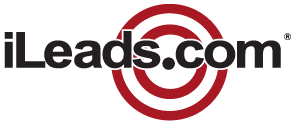
Welcome to iLeads Insurance Market Minute, where we bring you the latest, most relevant news regarding the insurance market. Last week you were reading Is The Insurance Industry Prepared For New Tech Risks?. This week we’re bringing ClarionDoor Selected To Optimize Insurer’s Cannabis Program:
New COVID-19 standards introduce workers’ compensation-related risks*

In response to the COVID-19 pandemic, President Joe Biden issued an Executive Order for OSHA to consider an Emergency Temporary Standard (ETS), which would include rules on wearing masks in the workplace and other regulations that aim to protect employees, as well as providing consistency of protection across all 50 states, according to the National Safety Council.
“OSHA’s anticipated Emergency Temporary Standard is likely to be very similar to the comprehensive COVID-19 standards that Virginia and California established in late 2020, but would apply to nearly all workers and worksites across the country,” explained Gary Pearce (pictured above), chief risk architect at Aclaimant. “It’s expected that this temporary OSHA standard will eventually be replaced by a new and permanent infectious disease standard, even if the frequency of COVID-19-related workplace infections has fallen sharply in the meantime.”
While the ETS has some clear benefits for worker safety, it also brings new risks to the forefront for businesses. For one, the ETS is likely to expand the totality of employers’ legal obligation and does not obviate the need to keep up with future changes, noted Pearce, adding: “Despite the existence of a unifying national standard, organizations shouldn’t discount the likelihood of having ongoing additional regulations at the state, county, or even municipal level.”
Already, many businesses have adopted some COVID-19-specific standards in their workplaces. It would have been hard not to, if companies wanted their employees to feel safe at work. A few of the more common changes have included employers requiring employees to self-report symptoms, keeping symptomatic employees out of work and managing their return, providing personal protective equipment (PPE), and requiring social distancing, among others.
Tesla’s in-car cameras raise privacy concerns: Consumer Reports*
(Reuters) — Tesla Inc.’s use of in-car cameras to record and transmit video footage of passengers to develop self-driving technology raises privacy concerns, influential U.S. magazine Consumer Reports said Tuesday.
Consumer Reports said the usage potentially undermines the safety benefits of driver monitoring, which is to alert drivers when they are not paying attention to the road.
“If Tesla has the ability to determine if the driver isn’t paying attention, it needs to warn the driver in the moment, like other automakers already do,” said Jake Fisher, senior director of Consumer Reports’ auto test center.
Automakers such as Ford Motor Co. and General Motors Co., whose monitoring systems do not record or transmit data or video, use infrared technology to identify drivers’ eye movements or head position to warn them if they are exhibiting signs of impairment or distraction, the magazine said.
Tesla did not immediately respond to a Reuters request for comment.
The Palo Alto, California-based carmaker’s internal cameras are also a point of contention in China, where the military banned Tesla cars from entering its complexes, citing security concerns.
Tesla CEO Elon Musk said last week his company would be shut down if its cars were used to spy.
ClarionDoor selected to optimize insurer’s cannabis program*
Insurtech provider ClarionDoor has been selected by a major Pennsylvania-based insurer to optimize its cannabis program.
The cannabis market is expected to hit $130 billion by 2024, providing new opportunities for insurance coverage for cannabis cultivators, wholesalers, processors, and distributors. The Pennsylvania-based property and casualty insurer “needed a flexible, cost-effective solution in order to launch products to market fast and integrate seamlessly with the company’s core systems,” ClarionDoor said.
ClarionDoor’s cloud-based software for rating and quoting allows specialty insurers to streamline their underwriting processes. “Many insurers offering coverage for emerging markets are still rating risks manually, and need solutions that fit seamlessly into newly implemented digital strategies,” ClarionDoor said.
“With cannabis legislation pending or at least proposed across the country, this opportunity is one that only continues to grow,” said Pat McCall, chief sales officer at ClarionDoor. “Truly, it is one of those specialty lines that is on the verge of booming, and technology should not stand in the way, but rather it should enable insurers to take advantage of growth potential.
Finding highly affordable leads to keep sales coming in
At iLeads, we have many great solutions for insurance agents at a low cost. If you’d like to see how we can help you bring in consistent sales for a great price, give us a call at (877) 245-3237!
We’re free and are taking phone-calls from 7AM to 5PM PST, Monday through Friday.
You can also schedule a call here.

